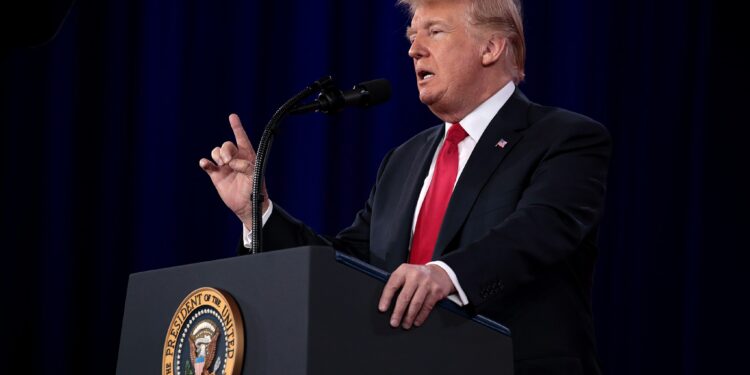
In a recent interview with Fox News host Maria Bartiromo, former President Donald Trump addressed the ongoing war between Ukraine and Russia and his stance on the conflict. Bartiromo asked Trump whether he was “comfortable” with the notion that Ukraine might not survive the war, following remarks from Polish President Andrzej Duda, who expressed concerns about Ukraine’s survival.
Trump responded with characteristic bluntness, saying, “Well, it may not survive anyway.” He acknowledged the complexities of the situation, noting the challenges the United States faces in dealing with Russia and the fact that the war could have been avoided. “Look, it was not going to happen, that war, and it happened. So, now we’re stuck with this mess,” Trump said, highlighting his perspective that the war’s emergence was an unfortunate development.
The former president’s remarks come amid mounting international concerns over the ongoing conflict. In the past, there has been speculation about the Trump administration’s approach to Ukraine. Under his leadership, tensions escalated when talks with Ukrainian President Volodymyr Zelensky ended dramatically, leading to the collapse of potential ceasefire negotiations. Furthermore, Trump’s administration engaged directly with Russian leaders, drawing criticism from European officials who were caught off guard by these diplomatic moves.
Bartiromo probed further, asking if Trump’s administration was treating both Russia and Ukraine equally in its diplomatic approach. Trump was clear in his response, asserting that both nations were “very different places” with different levels of power and influence, underscoring the geopolitical nuances involved.
While some critics of Trump’s stance view his approach as controversial, many Republicans appreciate his directness and prioritization of U.S. interests over international entanglements. Trump’s emphasis on American strength and his no-nonsense approach to foreign policy resonates with voters who are wary of prolonged foreign conflicts and excessive U.S. involvement abroad.
